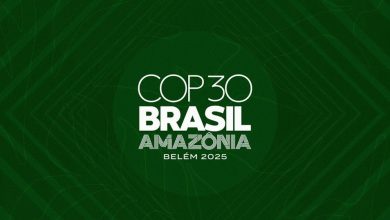MANILA, PHILIPPINES — The World Wide Fund for Nature (WWF) Philippines lauds the House of Representatives for the passage of House Bill 9147 or the Single-use Plastic Products Regulation Act on its third reading yesterday, July 28, 2021.
“The passage of HB 9147 is a step in the right direction,” said Ina Guingona, WWF’s No Plastics in Nature’s Policy Officer. “Plastic pollution has been a scourge to our environment and our communities. A more integrative approach that is grounded and solutions-focused is needed to address the multifaceted issue of plastic pollution. The passage of this bill signifies the Philippines’ commitment to tackling the problem in a holistic manner.”
HB 9147 is one of several bills pending in Congress that include Extended Producer Responsibility (EPR). This scheme, advocated by WWF, is a policy tool that holds producers accountable for the plastic packaging they put into the market throughout the whole life cycle of the product.
According to the bill, manufacturers and producers will be mandated to implement their EPR programs such as recovery of their plastic wastes two years after the enactment of the law to prevent their single-use plastic products from entering the environment.
Furthermore, the bill also mandates manufacturers to divert 100% of their plastic wastes within five years from the date the law takes effect. Business establishments are also mandated to provide reusable and locally made materials to the public.
EPR is a critical policy tool with a track record to hold manufacturers accountable for their plastic products and packaging’s end-of-life impacts, as well as to encourage holistic ecodesign in the business sector, according to WWF’s position paper on EPR.
On banning SUPs
Unnecessary single-use plastic materials including plates, saucers, cups, bowls, lids, cutlery like spoons, forks, knives, and chopsticks, will be phased out with medical exemptions within four years from the effectivity of this Act.
Other materials such as drinking straws, stirrers, sticks for candy, balloons, cotton buds, buntings, confetti, and packaging bags less than ten microns will be phased out one year from the effectivity of the Act.
Thereafter, the production, importation, sale, distribution, provision or use of the said plastic products shall be prohibited.
Properly labeled flexible disposable plastic drinking straws for persons with special medical conditions shall be allowed, when no suitable reusable or compostable alternatives are available.
A WWF report launched in October 2020 showed the challenges for waste management in the Philippines. More than 2 million tonnes of plastic waste, 15.43 kg per capita per year, is generated annually in the Philippines, 760,000 tonnes or 35% are leaked to the open environment while 706,000 tonnes or 33% go to landfills and dumpsites while only 9% is recycled.
“We hope the positive momentum brought by the passage of this bill will continue through the Senate and eventually, to the Office of the President. Our work is cut out for us, from the need to eliminate unnecessary plastics, redesigning the way we consume things, to implementing waste reduction and management as mandated by RA 9003 or the Ecological Solid Waste Management Act, there is clearly so much work to be done to address the plastic pollution problem in the country,” said Czarina Contantino – Panopio, No Plastics in Nature’s National Lead.








